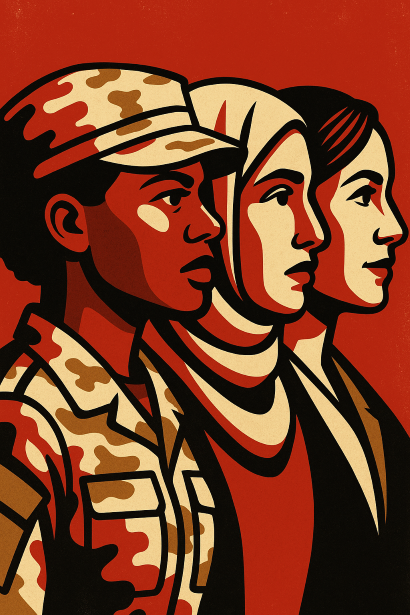Liberty Matters
Women in War and Peace

The essays and responses in this series highlight an important tension regarding war, liberty, and women. On the one hand, war has the capacity to empower women by disrupting or dismantling formal and informal institutions that exclude them from economic or other spheres. On the other hand, the authors in this series highlight war’s profound and devastating consequences on women. Some of these costs are clear and readily observable while others are long, variable, and difficult to measure.
These tensions surrounding war, and war’s capacity to be freedom-enhancing and freedom-eroding, are not new. In Democracy in America, for example, Alexis de Tocqueville discusses the tense relationship between war and democratic societies. Contemporary scholarship highlights similar dynamics regarding democratic institutions and war [1]. The essays in this series illustrate this ongoing discussion.
Scholars have offered different suggestions for resolving the broader tensions surrounding war and liberty. Is it possible to limit the deleterious effects of war? Many suggest the implementation of additional constraints on government, like increased transparency, more legislative oversight, and augmented legal constraints. But even a cursory glance at history reveals that such reforms are difficult to implement and may have limited efficacy.
In their essays and responses, Ammons, Lemke, and Kramer touch on alternatives worthy of additional consideration. Some scholars assign a critical role to citizen ideology in providing a constraint on government [2]. Tocqueville and others have highlighted how the “art of association” and self-governance provide a mechanism for solving collective action problems while providing a check on the state. To date, however, little scholarship examines how these ideas intersect with gender.
It is abundantly clear from this series that the impacts of war on women requires additional study. Beyond exploring the costs of war, however, it is also worth considering research on the role of women in building and sustaining peace. Elise Boulding’s work provides a fruitful starting point. In Cultures of Peace, Boulding emphasizes the role of women in fostering peace with their families, communities, and beyond. She also discusses women and their role in civil society and as agents of change. These topics are worthy of detailed exploration.
Endnotes
[1] Bruce D. Porter. 1994. War and the Rise of the State: The Military Foundations of Modern Politics. New York, NY: The Free Press.
[2] Robert Higgs. 1987. Crisis and Leviathan: Critical Episodes in the Growth of the American Government. New York, Y: Oxford University Press.
Copyright and Fair Use Statement
“Liberty Matters” is the copyright of Liberty Fund, Inc. This material is put on line to further the educational goals of Liberty Fund, Inc. These essays and responses may be quoted and otherwise used under “fair use” provisions for educational and academic purposes. To reprint these essays in course booklets requires the prior permission of Liberty Fund, Inc. Please contact oll@libertyfund.org if you have any questions.